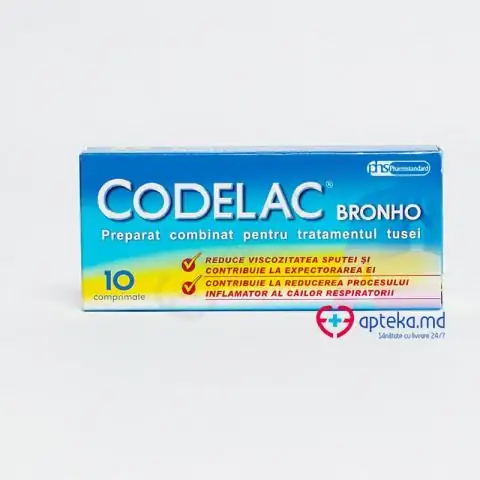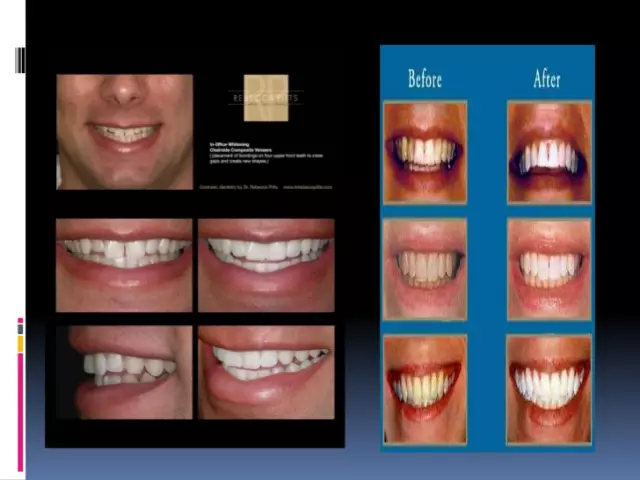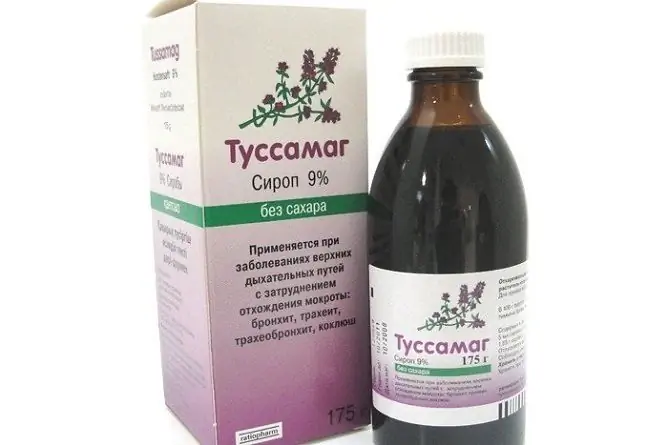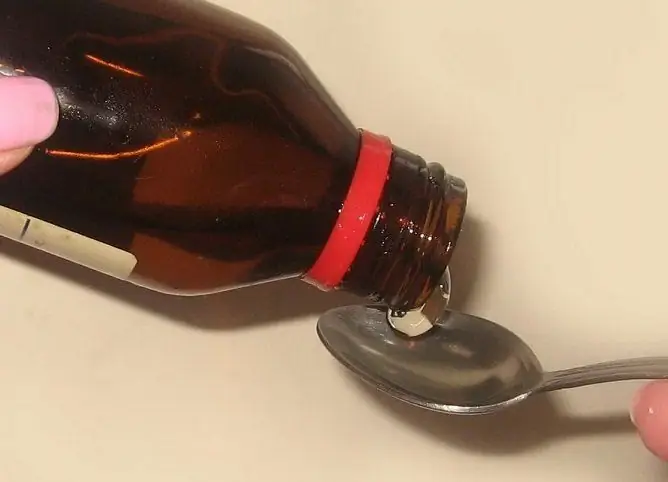- Author Rachel Wainwright [email protected].
- Public 2023-12-15 07:39.
- Last modified 2025-11-02 20:14.
Panatus
Panatus: instructions for use and reviews
- 1. Release form and composition
- 2. Pharmacological properties
- 3. Indications for use
- 4. Contraindications
- 5. Method of application and dosage
- 6. Side effects
- 7. Overdose
- 8. Special instructions
- 9. Application during pregnancy and lactation
- 10. Use in childhood
- 11. Drug interactions
- 12. Analogs
- 13. Terms and conditions of storage
- 14. Terms of dispensing from pharmacies
- 15. Reviews
- 16. Price in pharmacies
Latin name: Panatus
ATX code: R05DB13
Active ingredient: butamirate (Butamirate)
Manufacturer: JSC "Krka, dd, Novo mesto" (Slovenia)
Description and photo updated: 2018-29-11
Prices in pharmacies: from 136 rubles.
Buy

Panatus is a centrally acting antitussive agent.
Release form and composition
- film-coated tablets: round, biconvex, yellow-brown, beveled; on the break, a rough mass is visible, covered with a yellow-brown shell (10 pcs. in a blister, 1 blister in a cardboard box);
- syrup: clear liquid from colorless to light yellow in color, with a characteristic lemon odor (200 ml in a dark glass bottle with first opening control, 1 bottle complete with a measuring spoon in a cardboard box).
Each pack also contains instructions for using Panatus.
Composition of 1 film-coated tablet:
- active substance: butamirate citrate - 20 mg;
- auxiliary components: hypromellose K15M Premium, colloidal silicon dioxide, povidone K-25, magnesium stearate, lactose monohydrate, talc, quinoline yellow dye (E104);
- film shell: propylene glycol, talc, titanium dioxide (E171), hypromellose 6 mPas, dyes of iron oxide yellow (E172) and iron oxide red (E172).
Composition of 5 ml syrup:
- active substance: butamirate citrate - 4 mg;
- auxiliary components: purified water, liquid sorbitol, citric acid monohydrate, sodium hydroxide, sodium benzoate, glycerol, sodium saccharin, lemon flavor.
Pharmacological properties
Pharmacodynamics
The active ingredient of Panatus is butamirate, a centrally acting antitussive agent, which neither pharmacologically nor chemically refers to opium alkaloids.
The drug has a direct effect on the cough center, thereby suppressing coughing. Has a bronchodilating effect. Improves indicators of blood oxygenation and spirometry (reduces airway resistance), which helps to facilitate breathing.
Pharmacokinetics
After oral administration, butamirate is absorbed quickly and completely.
With repeated applications, the plasma concentration of the substance remains linear. No cumulation is observed.
The beginning of butamirate hydrolysis occurs in the blood, as a result of which 2-phenylbutyric acid and diethylaminoethoxyethanol are formed - metabolites that also have antitussive activity.
Butamirate and its metabolites bind approximately 95% to plasma proteins, which explains their long half-life and prolonged therapeutic effect.
The half-life is 6 hours. The metabolites are excreted mainly by the kidneys, while the acidic metabolites are significantly associated with glucuronic acid.
Indications for use
Panatus is used to relieve dry cough of any etiology, including whooping cough, bronchoscopy, surgical interventions, as well as in the pre- and postoperative periods.
Contraindications
Absolute:
- lactose intolerance, lactase deficiency and glucose-galactose malabsorption syndrome - for tablets, fructose intolerance - for syrup;
- I trimester of pregnancy;
- lactation period;
- children under 6 years old - for tablets, up to 3 years old - for syrup;
- hypersensitivity to any component of the drug.
Panatus should be used with caution in the II - III trimesters of pregnancy.
Panatus, instructions for use: method and dosage
Panatus tablets and syrup are intended for oral administration. The drug should be taken before meals.
Recommended dosage regimens for tablets according to age:
- 6-12 years old - 1 pc. 2 times a day;
- 12-18 years old - 1 pc. 3 times a day;
- from 18 years old - 2 pcs. 2-3 times a day.
Recommended dosage regimens for syrup depending on age:
- 3-6 years old - 10 ml 3 times a day;
- 6-9 years old - 15 ml 3 times a day;
- 9-18 years old - 15 ml 4 times a day;
- from 18 years old - 30 ml 3-4 times a day.
1 scoop = 5 ml syrup.
If after 5-7 days of treatment the cough persists, you should consult your doctor.
Side effects
Panatus is generally well tolerated.
In rare cases (≥ 1/10 000 to <1/1000), the following side effects are noted:
- from the digestive system: diarrhea, nausea, vomiting;
- from the central nervous system: dizziness, drowsiness;
- on the part of the skin: exanthema;
- others: allergic reactions.
Overdose
Symptoms: abdominal pain, nausea, diarrhea, vomiting, impaired coordination of movements, dizziness, irritability, drowsiness, decreased blood pressure.
Treatment: gastric lavage, intake of activated charcoal and laxatives, symptomatic therapy, maintenance of the functions of the respiratory and cardiovascular systems. The antidote is unknown.
special instructions
Each Panatus tablet contains 0.314 9 g of lactose.
5 ml of syrup (1 scoop) contains 1.75 g of sorbitol.
Sorbitol and sodium saccharin are included in Panatus syrup as sweeteners, so the drug can be prescribed for patients with diabetes mellitus.
Influence on the ability to drive vehicles and complex mechanisms
Butamirate causes drowsiness in some patients, therefore, during the period of therapy, caution should be exercised by vehicle drivers and persons employed in potentially hazardous industries, who require increased attention and speed of psychomotor reactions to work.
Application during pregnancy and lactation
There is no information on the safety of using butamirate during pregnancy. Whether the drug crosses the placental barrier is unknown. In this regard, in the I trimester, Panatus is contraindicated, in the II and III trimesters it can be used only as prescribed by a doctor.
It has not been established whether butamirate is excreted in breast milk, so it is not recommended to take Panatus during lactation.
Pediatric use
Panatus tablets are contraindicated in children under 6 years old, syrup - up to 3 years old.
Drug interactions
Information on possible drug interactions of butamirate is not provided by the manufacturer.
The drug suppresses the cough reflex, therefore Panatus should not be used simultaneously with expectorants, since in this case, sputum may accumulate in the respiratory tract.
During therapy, it is not recommended to take drugs that depress the central nervous system (including sleeping pills, tranquilizers and antipsychotics), as well as ethanol.
Analogs
The analogues of Panatus are: Codelac Neo, Omnitus, Panatus Forte, Sinekod.
Terms and conditions of storage
Store in original packaging out of reach of children at temperatures up to 25 ° C.
Shelf life of tablets - 5 years, syrup - 4 years.
Terms of dispensing from pharmacies
Available without a prescription.
Reviews about Panatus
According to reviews, Panatus is an effective antitussive agent that helps well with dry coughs of various etiologies, does not cause side effects and is relatively inexpensive.
The taste of the syrup, according to many patients, is too sweet, the aroma is pleasant.
Price for Panatus in pharmacies
The price of Panatus in the form of film-coated tablets is from 135 rubles. per pack of 10 Syrup cost - from 190 rubles. per bottle of 200 ml.
Panatus: prices in online pharmacies
|
Drug name Price Pharmacy |
|
Panatus 20 mg film-coated tablets 10 pcs. 136 RUB Buy |
|
Panatus Forte 50 mg film-coated tablets 10 pcs. 174 r Buy |
|
Panatus Forte 7.5 mg / 5 ml syrup 200 ml 1 pc. 175 RUB Buy |
|
Panatus Forte tablets p.o. 50mg 10 pcs. 206 r Buy |
|
Panatus Forte syrup 7,5mg / 5ml fl. 200ml 216 r Buy |
|
Panatus tablets p.o. 20mg 10 pcs. 217 r Buy |

Maria Kulkes Medical journalist About the author
Education: First Moscow State Medical University named after I. M. Sechenov, specialty "General Medicine".
Information about the drug is generalized, provided for informational purposes only and does not replace the official instructions. Self-medication is hazardous to health!






